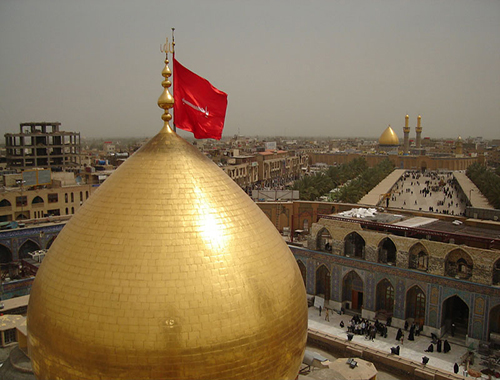The ‘Ihram
- Details
- Hits: 2743
The ‘Ihram
--------------------------------------------------------------------------------
Mawaqit al‑'Ihram
The ihramis compulsory for all the various kinds of Hajj as well as' `Umrah, andis regarded as their basic element (rukn)by the Imamiyyah, and as obligatory by other schools. All the five schools agree that the miqat of the people of al‑Madinah from where they assume ihramis Masjid al‑Shajarah, also known as Dhu al‑Hulayfah; [1] for the pilgrims of al‑Sham (which includes the Syrians, the Lebanese, the Palestinians and the Jordanians, noting further that the routes have changed from what they used to be in the past), Morocco and Egypt the miqatisal‑Juhfah; [2] for the pilgrims of Iraq, it is al‑`Aqiq; [3] for those from Yemen and others who take the same route, it is Yalamlam. [4]
According to the Imamiyyah, Qarn al‑Manazil [5] isthe miqatfor the people of al‑Ta'if and those who take their route towards Makkah. But according to the four Sunni schools, it is the miqat of the people of Najd. The miqatfor those from Najd and Iraq according to the Imamiyyah is al‑`Aqiq. All the legal schools agree that these mawaqitalso apply to those who in their journey take similar routes, even though they may not be natives of those regions For instance, if a Syrian starts on Hajj from al‑Madinah, it is permissible for him to assume ihramfrom Dhu al‑Hulayfah; if he starts on Hajj from Yemen, his miqat is Yalamlam; if from Iraq, then al‑`Aqiq, and so on. If one does not pass the mentioned mawaqiton his route, the miqat for him is the place parallel to any one of them.
If someone lives at a place nearer to Makkah than any of the prescribed mawaqit, then he assumes ihramfrom the place of his residence. For, someone who resides in Makkah itself, his miqatis Makkah. For one performing the al‑`Umrat al‑mufradah, the mawaqit, according to the Imamiyyah, are the same as for the Hajj.
Ihram Before Miqat
The four Sunni legal schools agree on the permissibility of assuming ihrambefore the point of miqat, but disagree as to which has greater merit. According to Malik and Ibn Hanbal, ihrambefore miqat ismore meritorious (afdal). According to Abu Hanifah, the merit lies in assuming ihramwhile starting the Hajj journey from one's town: Two opinions are ascribed to al‑Shafi'i in this regard.
However, according to the Imamiyyah school, ihrambefore miqatisnot permissible except for one who intends to perform the `Umrah in the month of Rajab and is afraid of missing it if ihramisdelayed until miqat isreached, and for one who makes a vow (nadhr)to assume ihrambefore the miqat. (al‑Tadhkirah, Fiqh al‑Sunnah)
Ihram after Miqat
There is consensus among all the legal schools that it is not permissible to cross the miqat without ihram, and one who does so must return to the miqatfor assuming ihram. If he does not return, according to the four Sunni schools, his Hajj is correct though he should offer a hady in atonement. But if there be any impediment, such as fear of insecurity on the way or shortage of time, there is no sin. This, regardless of whether there are other mawaqitbefore him on his path or not.
According to the Imamiyyah, if he has deliberately neglected to assume ihramat the miqat while intending to perform the Hajj or the `Umrah, if he does not turn back to the miqat, there being no other miqatbefore him from which he can assume ihram, his ihramand Hajj are invalid, whether he had a valid pretext for not returning or not. But if his failure to assume ihramat miqat was on account of forgetfulness or ignorance, if it is possible to return, he must do so; but if it is not possible, then from the next miqat before him. Otherwise he ought to assume ihramas far as possible outside the haramof Makkah, or within it; though the former is preferable. (al‑Tadhkirah, al‑Fiqh `ala al‑madhahib al‑'arba`ah)
Ihram before the Hajj Months
According to the Imamiyyah and Shafi'i schools, the ihrambefore the months of the Hajj is invalid if assumed with the purpose of Hajj, though it is valid when assumed for the purpose of the `Umrah. They cite in this regard the Qur'anic verse (2:197): الØج اشهر معلومات But according to the Hanafi, Maliki and Hanbali schools, it is permissible with karahah. (al‑Tadhkirah, Fiqh al‑Sunnah)











